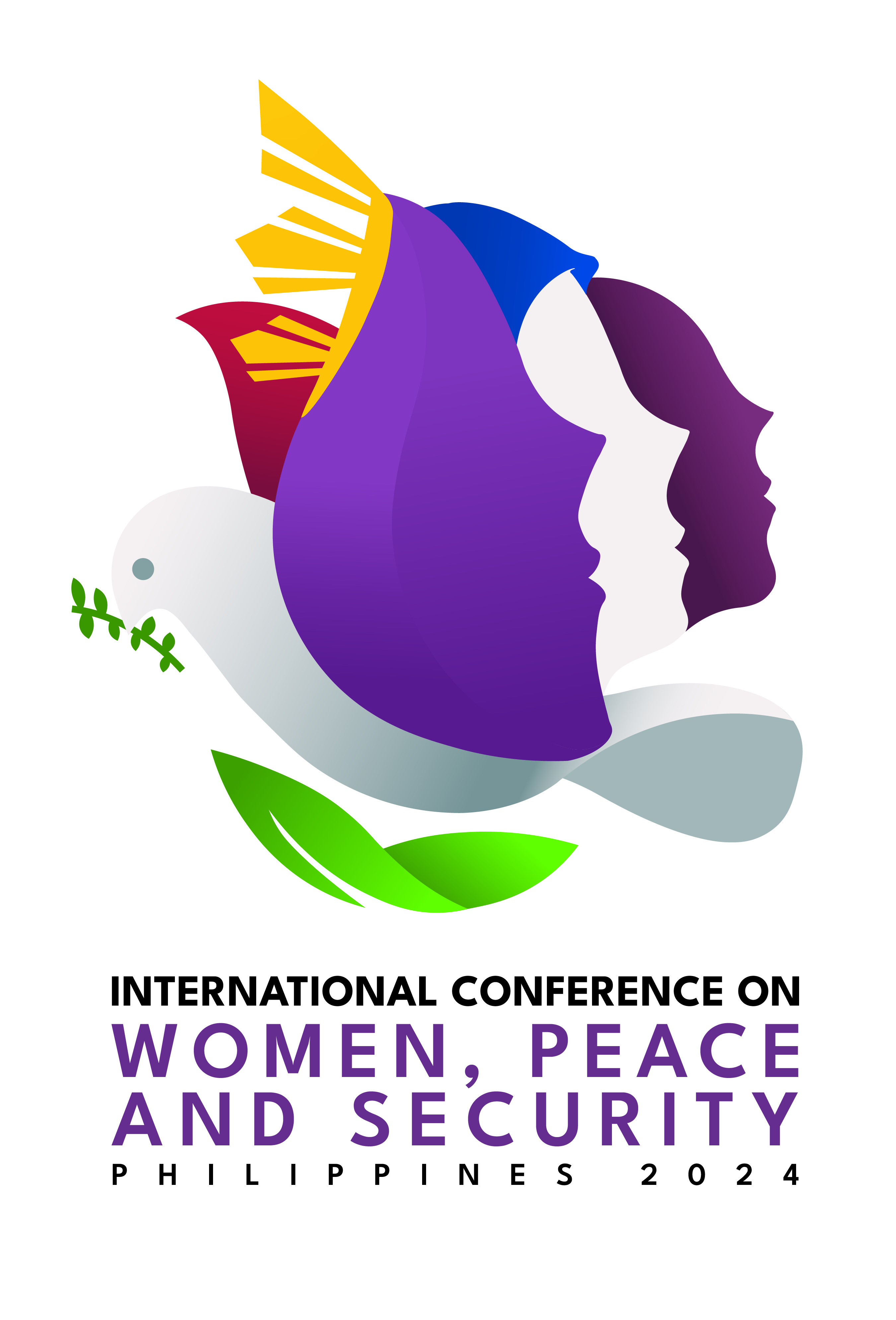Int’l conference highlights women’s key role in peacebuilding and preventing violent extremism

PASAY CITY— The key role of women in peacebuilding and preventing and transforming violent extremism (PTVE) took centerstage during the three-day International Conference on Women, Peace, and Security (ICWPS) on Wednesday.
In a side event participated in by representatives from the Office of the Presidential Adviser on Peace, Reconciliation, and Unity (OPAPRU), Anti-Terrorism Council – Program Management Center (ATC-PMC) and the Department of the Interior and Local Government (DILG), the panel underscored the major influence that women hold in their communities and families in maintaining the peace, preventing the outbreak of violence, and keeping violent extremists at bay.
Starting them young
Panelist Bai Rohaniza Sumndad-Usman, founder of the non-governmental organization ‘Teach Peace Build Peace Movement’ (TPBPM), identified the different creative ways their group has used in teaching and building peace among the children and youth.
“As part of our dedication towards cultivating a culture of peace amongst children and youth, we have been using innovative and creative strategies such as music, arts, games, sports, service and peace education, and learning resources that we crafted to cultivate knowledge, skills, attitudes, values, and behaviors on how to have peace with self, peace with others, and peace with our environment,” Sumndad-Usman shared.
She said that when the TPBPM was created, it studied how they could complement existing peace programs of the government and other institutions, which are focused on mainstreaming peace education both formal and non-formal in the Philippines.
“Back in 2016, we created the Peace Heroes Formation Program as our peace education model in support of existing local and national initiatives on improving and strengthening people and institutions capacity,” Sumndad-Usman related.
Their intention then, she said, was to create an innovative model that will guide schools and communities on how they could build a culture of peace and resilience through formal and non-formal peace education.
“Our journey in Government and CSO’s collaboration highlighting young women’s role was strengthened in 2023. With support from the Global Community Engagement and Resilience Fund (GCERF) and in partnership with local, regional, and national government institutions from school-based peace education as part of our beginnings, we started engaging with local government leaders and the security sector in our partner communities,” Sumndad-Usman added.
Localizing national policies
Ms. Joan Hope Tolibas, project manager of the DILG’s PCVE explained how the Philippine government ensures that national policies are also being effectively implemented at the grassroots level.
“For the prevention, countering violent extremism. It’s very important to know that the NAP-P/CVE being implemented on the national level is focusing on community participation and involvement. That’s why we are doing the localization across 17 regions,” Tolibas said.
“In fact, it has always been embedded in all the NAP-P/CVE modules on how women can actually participate, especially on the community based,” she added.
The National Action Plan on Preventing and Countering Violent Extremism (NAP-P/CVE) is a strategic framework adopted by the Philippine government to address and mitigate the root causes and appeal of violent extremism.
The crafting of the The NAP P/CVE was spearheaded by the Department of the Interior and Local Government (DILG) and supported by other line agencies, which include, among others, the OPAPRU.
The NAP P/CVE is the comprehensive, harmonized, and synchronized national strategy of the government to prevent and counter violent extremism.
It includes programs that address the political, economic, cultural, psychosocial, and religious factors of radicalization that lead to violent extremism.
“Given the mandate of the DILG, we work closely with local government units. We find it very important that the different vulnerable sectors will be able to participate. There’s a local translation of the national policy,” Tolibas pointed out.
She said that this is the strategy used by her agency in monitoring how the program is actually being localized.
“Another one is that we also have the early warning prevention response to the risk of violent extremism. This is an important effort that we do have to ensure being proactive in terms of looking at the risk of violent extremism,” Tolibas added.
The PCVE Project Management Office was created as part of the DILG’s efforts to integrate its interventions to combat violent extremism.
Community dialogue as tool for P/CVE
Diwi Rubiyanti Kholifaf of the Asian Muslim Action Network shared herl perspective on the vital role that all citizens should play in preventing, countering and transforming violent extremism in Indonesia, as she stressed that empowering the community is a critical strategy in shaping a more peaceful future for their people.
“So then, we insert a peacebuilding approach by running a series of dialogues among the different groups in the community, including the government, security sectors, religious groups, community leaders, the youth group, the women group, the victim group, and all the group axis in the community in order to make them understand about social reintegration,” Kholifaf said.
“And then the community accepts and then they build a commitment in the future,” she added.
The OPAPRU is currently collaborating with female FVEs who serve as peace “champions” within their communities. These women not only help prevent others from re-engaging in extremist activities but also advocate for peace based on their firsthand experiences.
The ICWPS was organized by the Philippine government, led by the Department of Foreign Affairs (DFA), the OPAPRU, the Philippine Commission on Women (PCW) and the Department of Budget and Management (DBM), in partnership with UN Women, the Philippine Center for Islam and Democracy, and the ASEAN Institute for Peace and Reconciliation, with the support of the Office of Senator Loren Legarda.


